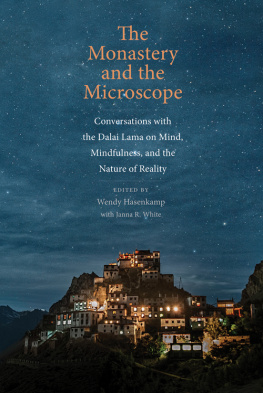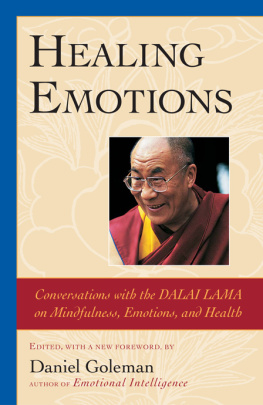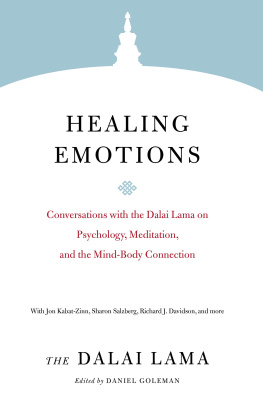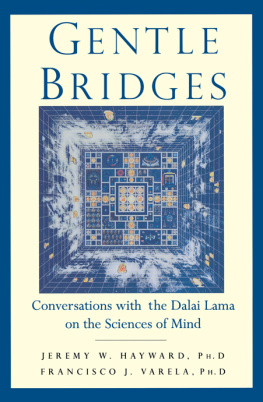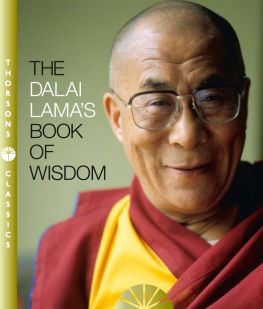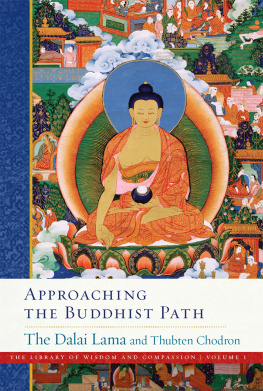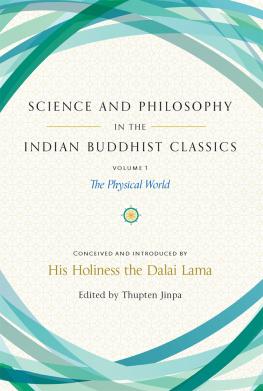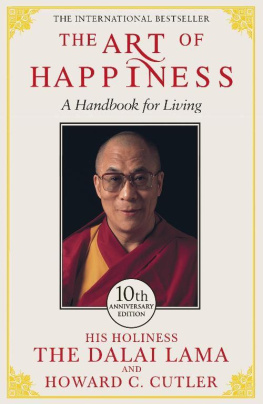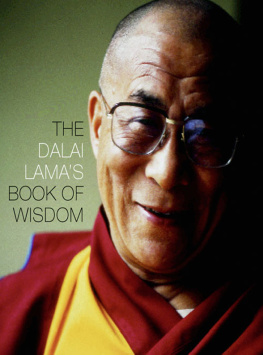Janna R. White - The Monastery and the Microscope : Conversations with the Dalai Lama on Mind, Mindfulness, and the Nature of Reality
Here you can read online Janna R. White - The Monastery and the Microscope : Conversations with the Dalai Lama on Mind, Mindfulness, and the Nature of Reality full text of the book (entire story) in english for free. Download pdf and epub, get meaning, cover and reviews about this ebook. year: 2017, genre: Religion. Description of the work, (preface) as well as reviews are available. Best literature library LitArk.com created for fans of good reading and offers a wide selection of genres:
Romance novel
Science fiction
Adventure
Detective
Science
History
Home and family
Prose
Art
Politics
Computer
Non-fiction
Religion
Business
Children
Humor
Choose a favorite category and find really read worthwhile books. Enjoy immersion in the world of imagination, feel the emotions of the characters or learn something new for yourself, make an fascinating discovery.
- Book:The Monastery and the Microscope : Conversations with the Dalai Lama on Mind, Mindfulness, and the Nature of Reality
- Author:
- Genre:
- Year:2017
- Rating:3 / 5
- Favourites:Add to favourites
- Your mark:
- 60
- 1
- 2
- 3
- 4
- 5
The Monastery and the Microscope : Conversations with the Dalai Lama on Mind, Mindfulness, and the Nature of Reality: summary, description and annotation
We offer to read an annotation, description, summary or preface (depends on what the author of the book "The Monastery and the Microscope : Conversations with the Dalai Lama on Mind, Mindfulness, and the Nature of Reality" wrote himself). If you haven't found the necessary information about the book — write in the comments, we will try to find it.
Janna R. White: author's other books
Who wrote The Monastery and the Microscope : Conversations with the Dalai Lama on Mind, Mindfulness, and the Nature of Reality? Find out the surname, the name of the author of the book and a list of all author's works by series.
The Monastery and the Microscope : Conversations with the Dalai Lama on Mind, Mindfulness, and the Nature of Reality — read online for free the complete book (whole text) full work
Below is the text of the book, divided by pages. System saving the place of the last page read, allows you to conveniently read the book "The Monastery and the Microscope : Conversations with the Dalai Lama on Mind, Mindfulness, and the Nature of Reality" online for free, without having to search again every time where you left off. Put a bookmark, and you can go to the page where you finished reading at any time.
Font size:
Interval:
Bookmark:
The Monastery and the Microscope

Published with assistance from the Mary Cady Tew Memorial Fund.
Copyright 2017 by Mind & Life Institute.
All rights reserved.
This book may not be reproduced, in whole or in part, including illustrations, in any form (beyond that copying permitted by Sections 107 and 108 of the U.S. Copyright Law and except by reviewers for the public press), without written permission from the publishers.
Yale University Press books may be purchased in quantity for educational, business, or promotional use. For information, please e-mail (U.K. office).
Set in Bulmer type by IDS Infotech Ltd., Chandigarh, India.
Printed in the United States of America.
ISBN 978-0-300-21808-4 (hardcover : alk. paper)
Library of Congress Card Catalogue Number: 2017931097
A catalogue record for this book is available from the British Library.
This paper meets the requirements of ANSI/NISO Z39.481992 (Permanence of Paper).
10 9 8 7 6 5 4 3 2 1
The editors and the Mind & Life Institute gratefully acknowledge
the generous help of the Hershey Family Foundation
in sponsoring the publication of this book.
Contents
The Essence of Mind: Dualism, Mind-Body Entanglement, and
Conscious Experience
Working Skillfully with Spilled Milk: Mindfulness in
Clinical Psychology
HIS HOLINESS THE DALAI LAMA AND
GESHE NGAWANG SAMTEN
APPENDIX: QUESTIONS AND ANSWERS WITH
FIVE THOUSAND MONASTICS
Acknowledgments
WE ARE DEEPLY GRATEFUL TO THE many people who helped to make Mind & Life XXVI and this book a reality.
Firstly, a deep bow of gratitude to His Holiness the Dalai Lama. He has provided constant support, encouragement, and guidance to the Mind & Life Institute since the beginning. He is the heart of this book, and a source of great hope and inspiration for us and many others.
We wish to thank all the event speakers and moderators for giving generously of their time, wisdom, and kindness at the event and in completing this book. Many friends helped shape the content of the conference by sharing their ideas and contacts, particularly Anne Harrington and Richie Davidson. Special thanks go to Thupten Jinpa, who envisioned how we could bring a Mind & Life dialogue to a monastic setting, and whose extraordinary skill and dedication as a translator cannot be overstated. Thank you also to the entire Mind & Life staff, especially Arthur Zajonc for his sage guidance and Heather Lee Lohr for her careful planning and on-the-ground support in Mundgod.
Without the generous financial support of the Hershey Family Foundation and the Dalai Lama Trust India, Mind & Life XXVI would not have been possible. We extend our gratitude to our cosponsors, the Dalai Lama Trust India and the Library of Tibetan Works and Archives, and particularly to Geshe Lhakdor for his coordination of an untold number of logistical details within India. We are inspired by the important work in monastic science education being done by Science Meets Dharma, Science for Monks, and the Emory-Tibet Science Initiative. Without years of effort from these groups, we could never have hoped to bring this dialogue into a monastic setting. Thank you to everyone at the Office of His Holiness the Dalai Lama and Drepung Monastery for serving as our gracious hosts for the event, to Ganden Shartse Monastery for making a home for the presenters and staff in their lovely guesthouse, and to all the wonderful monks and nuns in Mundgod.
We are grateful to Linda Loewenthal for helping find a home for this book, and to our superb team at Yale University Press, especially Jennifer Banks, Kate Davis, Heather Gold, and Margaret Otzel. Two anonymous reviewers gave the book their careful attention and improved the manuscript greatly.
Constance Kassor fixed our Tibetan and Sanskrit and clarified the finer points of Tibetan Buddhist philosophy for us (any remaining errors are entirely our own). Andy Rotman gave us invaluable feedback on the introduction and support throughout the project. David Pasek and Ned Dunn helped create our beautiful book jacket. Northampton Coffee and Haymarket Cafe fueled many long work sessions. A grant from the Turkey Land Cove Foundation provided critical time and a serene space for writing the introduction.
Finally, to the many people who helped us along the wayespecially Diego Hangartner, David Kittelstrom, Sally Knight, Alex Phillips, Brendan Tapley, B. Alan Wallace, David White, Warner White, James Wilson, and everyone at the Writers Mill in Florence, Massachusettswe thank you.
Introduction
WENDY HASENKAMP WITH JANNA R. WHITE
By the time my alarm sounds, Ive been out of bed for some time, awake with excitement. After a year of planning and preparation, it seems strange to finally be here. I splash some water on my face and step out onto the concrete balcony of the Tibetan guesthouse that will be my home for the next week. Last night the triumphant shouts of debating monks went on late into the evening. I still slept well, thanks to jet lag. Leaning on the railing, I take in the morning scene. Fields of maize and gram extend to the horizon, punctuated by the occasional meandering cow. The sounds of children at a nearby school float up on the warm breeze. The sun is rising slowly through the haze. The weather is pleasant; its January, but winter here is like late summer back in the United States.
This is the remote settlement of Mundgod, located in Karnataka in the south of India. In this state of sixty million people, nearly 85 percent of them Hindu, Mundgod is an anomaly. It is primarily a Tibetan Buddhist community, created by the Indian government in the 1960s as a settlement for Tibetan refugees who came to India after the Chinese takeover of their homeland. Mundgod is also home to Drepung and Ganden Monasteries, which were originally founded in Tibet in the fifteenth century but were reestablished here after their original locations were ravaged. Today, more than five thousand monks and nuns study at the villages seven monasteries, and hundreds of Tibetan families live in the area, creating a unique Tibetan enclave.
Ive come here with a team of scientists and philosophers to meet with the Dalai Lama and other monastic scholars to explore the intersections of Western scientific and Tibetan Buddhist thought. As a neuroscientist, I am technically one of the representatives of Western science, although lately Buddhist philosophy has been gaining increasing influence on my worldview, in part because of events like this.
After a simple breakfast of toast and tea, I make my way from the guesthouse on the edge of the settlement toward the monastery. I walk along open fields for a few minutes, and then the fields give way to clusters of houses. Eventually I pass through the open gate to Drepung Monasterys campus. The central street is lined with small shops and a market. Its still early, but most of the shopkeepers have already lifted their metal grates and begun sweeping the dust from their doorsteps. Each vendor seems to sell the same goods as his competitors, and I wonder how they all can remain in business.
Arriving at the compound gate, I show my badge to the policeman guarding the back entrance to the temple. Face unchanging, he adjusts his rifle and lets me through. I then unzip my backpack to show the contents to a female security officer, who picks through my personal belongings with professional scrutiny before allowing me to pass. The Indian government provides the Dalai Lama with its highest level of security, so all visitors must negotiate an elaborate security cordon. Even though I have no contraband, I still breathe a small sigh of relief at having passed the inspection.
Next pageFont size:
Interval:
Bookmark:
Similar books «The Monastery and the Microscope : Conversations with the Dalai Lama on Mind, Mindfulness, and the Nature of Reality»
Look at similar books to The Monastery and the Microscope : Conversations with the Dalai Lama on Mind, Mindfulness, and the Nature of Reality. We have selected literature similar in name and meaning in the hope of providing readers with more options to find new, interesting, not yet read works.
Discussion, reviews of the book The Monastery and the Microscope : Conversations with the Dalai Lama on Mind, Mindfulness, and the Nature of Reality and just readers' own opinions. Leave your comments, write what you think about the work, its meaning or the main characters. Specify what exactly you liked and what you didn't like, and why you think so.

